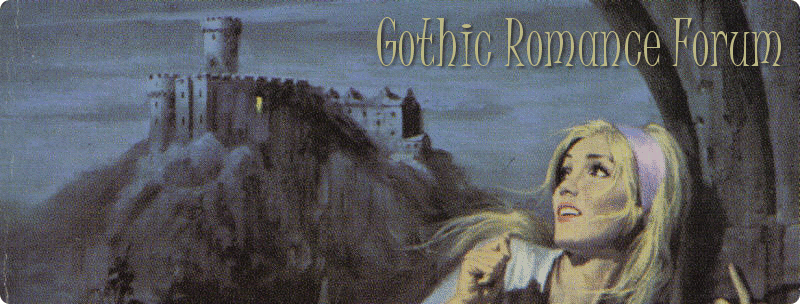07-01-2011, 02:23 PM
I've just finished this book and will add my review to yours, Penfeather. It was an interesting story, but somehow I didn't feel like the author spoke to me. I keep thinking that Mary Stewart must be somewhat arrogant. She evidently loves language and wants to show off her knowledge of it, but has no consideration for the reader who may not be able to follow along. Perhaps she should have become a poet instead of a storyteller, as I think she's surely lacking in skills in the latter department. She has good ideas and a well formed storyline, but she puts no effort in drawing her readers into the story by using straightforward and compelling language. Can you imagine Mary Stewart sitting at a campfire and keeping her audience enthralled by telling riveting stories?
Neither can I.
I suppose in this particular book she was handicapped also by her plan that the reader should not know the heroine's own identity: is she the true claimant or is she an impostor? Therefore we never learn what the heroine thinks: we can deduce from her actions and her words, but we're not sure she's not lying either. So there's not much to make the reader like our heroine. In fact, most of the people weren't very likeable, although I loved Donald....
So it's funny to see how for you, Penfeather, (whose language skills far surpass the average reader's, I've no doubt) this book won points for its "elegant, pitch-perfect prose", and for me this prose was the thing that let me down.
Back to the story. It's been done before, of course, lots of times. Even the book's conspirators refer to the Tichborne case, the prisoner of Zenda and Josephine Tey's Brat Farrar. It's a great plot, an instant winner I should say. Nonetheless, I found myself bored quite often. Several scenes were drawn out to the limit. Conversations went on forever, and even the descriptions of surroundings, nature and such, took double the sentences they should have taken, in my opinion, of course.
My final criticism is directed at the legal issues concerning the grandfather's Will. It was discussed a lot, but in the end I think the author either messed up a bit or failed to clarify a few things.
My verdict: a 6 out of 10
Neither can I.
I suppose in this particular book she was handicapped also by her plan that the reader should not know the heroine's own identity: is she the true claimant or is she an impostor? Therefore we never learn what the heroine thinks: we can deduce from her actions and her words, but we're not sure she's not lying either. So there's not much to make the reader like our heroine. In fact, most of the people weren't very likeable, although I loved Donald....
So it's funny to see how for you, Penfeather, (whose language skills far surpass the average reader's, I've no doubt) this book won points for its "elegant, pitch-perfect prose", and for me this prose was the thing that let me down.
Back to the story. It's been done before, of course, lots of times. Even the book's conspirators refer to the Tichborne case, the prisoner of Zenda and Josephine Tey's Brat Farrar. It's a great plot, an instant winner I should say. Nonetheless, I found myself bored quite often. Several scenes were drawn out to the limit. Conversations went on forever, and even the descriptions of surroundings, nature and such, took double the sentences they should have taken, in my opinion, of course.
My final criticism is directed at the legal issues concerning the grandfather's Will. It was discussed a lot, but in the end I think the author either messed up a bit or failed to clarify a few things.
My verdict: a 6 out of 10



